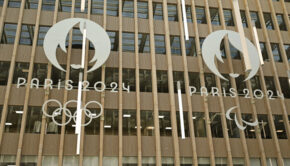Where Freedom of Speech isn’t
Published on January 19th, 2022
China’s treatment of its Muslim-majority Uyghur people and polices toward Tibet, Hong Kong and Taiwan have come under increased scrutiny ahead of the Beijing 2022 Olympics, which has led the United States and several allies to announce a diplomatic boycott of the competition.
However, human rights activists are urging athletes at the Beijing Olympics to avoid criticizing China because they could be prosecuted.
The International Olympic Committee has said athletes will have freedom of speech when speaking to journalists or posting on social media, but the Olympic Charter rule that prohibits political protests at medal ceremonies also requires “applicable public law” to be followed.
The IOC has not yet publicly committed to how athletes who speak out would be protected, and has not responded to requests in recent days to clarify how Chinese law could apply at the Beijing Games, which open on February 4.
“Chinese laws are very vague on the crimes they can use to prosecute people’s free speech,” said Human Rights Watch researcher Yaqiu Wang, citing potential offenses of provoking trouble or inciting subversion.
Two-time Olympic cross-country skier Noah Hoffman said he knew the United States team was now shielding its athletes from facing questions. “That makes me upset and I am scared for their safety when they go to China,” Hoffman said. “They can speak out when they get back.”
Amid alarms about data privacy and spying in China, some Olympic national teams have also advised athletes not to take personal telephones and laptops to Beijing. “Any person with a sane mind who hears all these things must have concerns,” said Rob Koehler, the director general of the Global Athlete group.
Source: Associated Press









 We’ll keep your information safe.
We’ll keep your information safe.